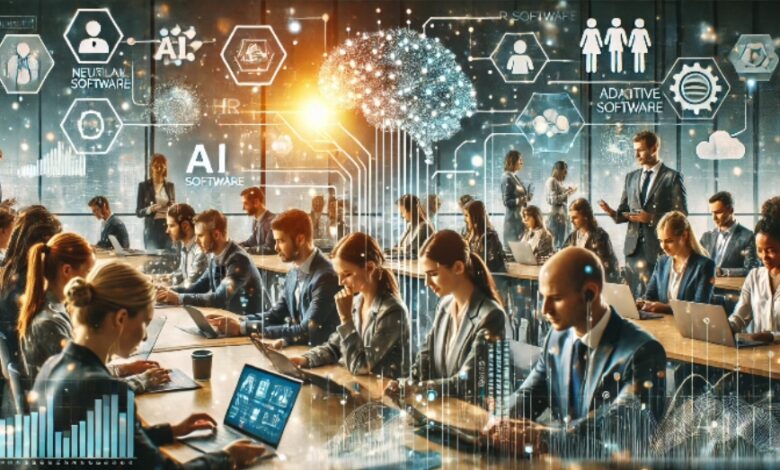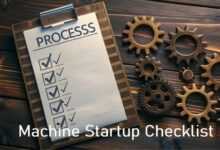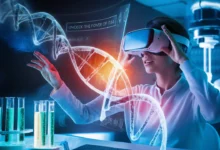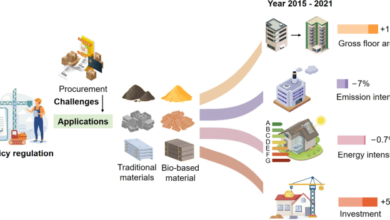The Future of HR Tech: How Generative AI Powers Adaptive Learning and Employee Growth

Introduction
The modern workplace is evolving rapidly, with continuous upskilling and personalized training becoming vital for employee growth and business success. Traditional training methods often fail to meet the dynamic learning needs of a diverse workforce. However, HR software development integrated with generative AI is transforming learning and development (L&D) by enabling adaptive learning systems that personalize and optimize training paths for employees.
Understanding Adaptive Learning in HR Tech
Adaptive learning refers to educational technology that customizes learning experiences based on individual performance, engagement, and progress. Unlike conventional, one-size-fits-all training programs, adaptive learning tools can modify content and pace to align with each employee’s learning style, capabilities, and needs. This approach fosters a more efficient, engaging, and impactful learning environment.
Generative AI plays a significant role in adaptive learning by generating custom learning materials and content that evolves based on real-time feedback. This allows HR departments to implement personalized training programs seamlessly integrated into larger HR software development projects.
Generative AI’s Role in Enhancing Adaptive Learning
Generative AI has revolutionized adaptive learning through various mechanisms:
- Personalized Content Creation: Generative AI can develop custom learning modules tailored to each employee’s specific knowledge level and training requirements. For example, if an employee shows advanced proficiency in one area but needs improvement in another, AI can adjust the learning path accordingly. This personalization maximizes the relevance and impact of training.
- Real-Time Assessment and Feedback: AI-driven learning platforms can instantly assess an employee’s performance and adapt training material as needed. Real-time data analysis helps identify strengths and weaknesses, offering immediate feedback that keeps employees engaged and on track.
- Dynamic Learning Paths: Unlike static training programs, generative AI enables dynamic paths that evolve with an employee’s progress. By analyzing how an individual responds to different types of content—such as videos, quizzes, or interactive simulations—the system can shift strategies to better suit their learning preferences.
Case Study: Unilever’s Use of Generative AI for Training
Unilever is a leading example of using HR software development to leverage generative AI in employee training. By incorporating AI into their L&D programs, Unilever created adaptive modules that adjust based on real-time employee interactions. This resulted in a 15% increase in training completion rates and significantly improved on-the-job performance. The integration of AI-driven adaptive learning has allowed Unilever to scale personalized training efficiently across its global workforce.
Benefits of Generative AI-Powered Learning
- Increased Efficiency: Adaptive learning powered by generative AI cuts down training time by focusing on areas that need the most attention, rather than re-teaching concepts an employee already understands. This streamlined approach saves time and reduces redundancy, leading to faster competency development.
- Improved Engagement: Custom training paths tailored to individual preferences foster a higher level of engagement. Employees are more likely to complete training when it’s relevant, interactive, and aligns with their specific growth needs.
- Enhanced Employee Retention: Companies that invest in tailored learning solutions often see higher retention rates. Employees value personalized development and are more likely to remain loyal to organizations that prioritize their professional growth.
- Data-Driven Insights for HR: HR software development incorporating generative AI provides valuable analytics that HR teams can use to track training effectiveness, monitor skill development, and identify potential gaps. This data can guide future learning strategies and improve overall workforce capabilities.
Implementing Generative AI in HR Software Development
Integrating generative AI into existing HR systems can be done through several strategies:
- Custom Learning Modules: Companies can develop or implement HR software that includes AI-driven adaptive learning platforms capable of creating and modifying training content based on user interaction.
- Real-Time Performance Tracking: Leveraging generative AI’s ability to analyze data in real-time allows HR teams to adjust learning programs and improve training outcomes on the fly.
- Feedback Mechanisms: AI-powered HR tools can collect and interpret feedback from users to refine learning content, ensuring it remains relevant and effective over time.
Case Study Highlight: Company XYZ, a global technology firm, integrated AI-driven learning solutions into their HR software. This led to a 30% reduction in time spent on training, coupled with a 20% increase in job-specific skills application.
Challenges to Consider
While the benefits of generative AI in adaptive learning are significant, there are challenges that companies must address:
- Data Privacy: Integrating generative AI into HR tech requires handling sensitive employee data. Companies must establish robust data protection protocols to ensure privacy and compliance with relevant regulations.
- Initial Costs: Implementing AI-driven learning solutions can require significant investment. However, the long-term ROI in terms of productivity and employee satisfaction often justifies the upfront costs.
- Employee Adaptation: Shifting from traditional to AI-driven learning systems may come with a learning curve. Training and change management strategies are crucial to help employees adapt to new processes.
Conclusion
Generative AI in HR is redefining the landscape of learning and development. By incorporating AI-powered adaptive learning into HR software development, companies can offer personalized training that aligns with both individual and organizational goals. These technologies not only improve training outcomes but also foster an environment of continuous growth and adaptability. As more organizations recognize the potential of generative AI, its role in shaping the future of HR will only expand, enabling adaptive learning and driving employee success.
Keep an eye for more news & updates on Usa Tech Magazine!





